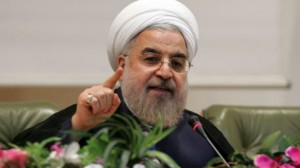 Irans new president, Hassan Rohani, defended his cabinet nominees before parliament, trying to deflect concerns that some have ties to opposition figures who led protests against the regime four years ago.
Irans new president, Hassan Rohani, defended his cabinet nominees before parliament, trying to deflect concerns that some have ties to opposition figures who led protests against the regime four years ago.The people I have nominated are the most qualified, and in line with the policies of the government, Rohani told lawmakers today in a session aired live on state television. Parliament is reviewing the qualifications of his proposed ministers this week and will hold a vote for each.
Rohani, a trained lawyer and cleric, was elected in June on pledges to improve Irans economy and world standing, battered by U.S.-led sanctions over the countrys nuclear program. The penalties have accelerated inflation, weakened the national currency and cut Irans oil exports, the countrys main source of revenue.
Cabinet nominees include former United Nations ambassador Mohammad Javad Zarif, tapped to become foreign minister; Hossein Dehghan, a former commander of the Revolutionary Guard Corps air force, for minister of defense; and Bijan Namdar Zanganeh, chosen to retake his previous position as oil minister.
Rohani said he ignored the nominees political affiliations, choosing them instead on the basis of their abilities and experience. Several of his 18 nominees served under former presidents Mohammad Khatami and Ali Akbar Hashemi Rafsanjani, whose support helped him to win the election.
Strong Allegiance
All proposed ministers sympathize with the Islamic Republic, have strong allegiance to Supreme Leader Ayatollah Ali Khamenei and will do all they can for the country, said Rohani, who was inaugurated last week.
Rohanis emphasis on the nominees loyalty appeared directed at lawmakers who have criticized some of his nominees, including Zanganeh.
Legislator Ataollah Hakimi accused some of the presidents Western-educated candidates of ties to the sedition, a term some officials use to describe the opposition movement that emerged after the 2009 re-election of Mahmoud Ahmadinejad. The balloting was tainted by allegations of fraud and sparked protests the government quelled with violence, saying the unrest was engineered by Western nations to undermine the Islamic Republic.
Old People
The pre-election Rohani is different from the post-election one, Hakimi said. Do you plan to forget your promises and give away your values to the West?
Another parliamentarian, Ahmad Bakhshayesh, criticized Rohani for using ministers from previous administration rather than nominating promising individuals from a younger generation.
Your government is one of old people, Bakhshayesh said.
About 148 lawmakers signed up today to speak in favor of Rohanis program and his government, while 18 registered to voice their disagreement, state-run Fars news agency reported.
In his address today, Rohani said he will follow a dual track by trying to halt the negative trend in Irans nuclear diplomacy while at the same time seeking to diversify economic revenues and improve the allocation of existing ones.
Rohani said one of the priorities of his government is to curb liquidity growth in order to control inflation, which will boost investment and stabilize the economy. The government will push forward with a program of subsidy reforms started under Ahmadinejad, though it will be carried out more efficiently, ensuring that poorer Iranians are adequately compensated for higher food and energy prices, Rohani said.
By Bloomberg
The Iran Project is not responsible for the content of quoted articles.










